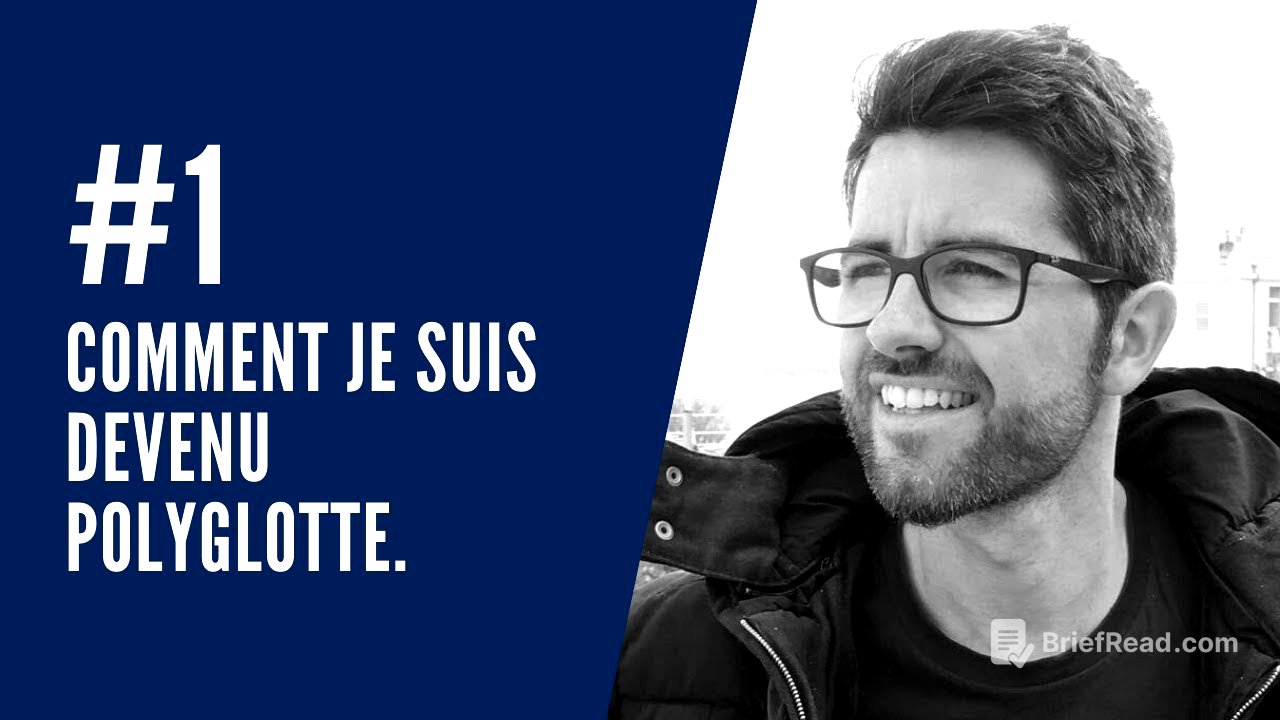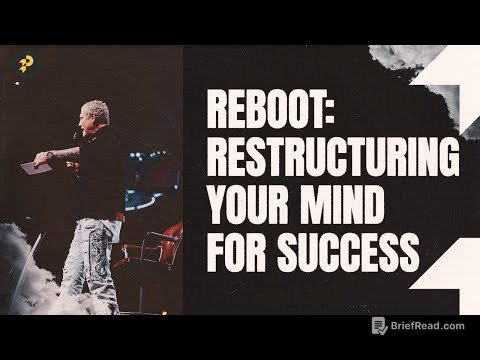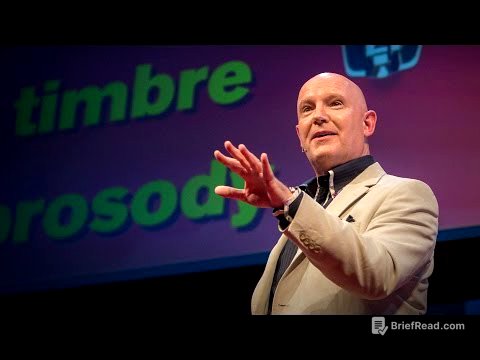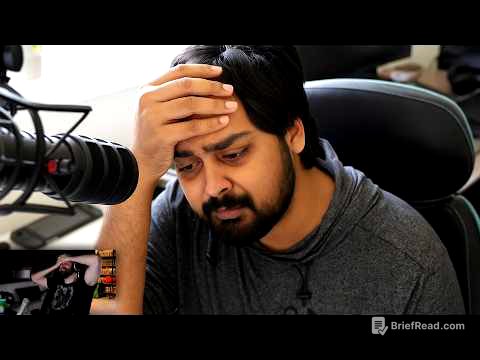TLDR;
Fabien shares his journey to becoming multilingual, starting with his early exposure to English through family in the United States and his experiences learning English in the French education system. He discusses the challenges French speakers face with English, such as pronunciation difficulties and the lack of immersion in English-speaking environments. Fabien highlights his personal motivation to learn English, his initial struggles with comprehension, and the resources he used to improve, including the Mozac Lingua app. He also recounts his first trip abroad to Thailand, where he realized the practical importance of English, and his subsequent trip to Malta, where he faced the reality of his English-speaking skills and the need for further practice.
- Early exposure to English through family in the United States.
- Challenges of learning English in the French education system.
- Discovery of the Mozac Lingua app and its spaced repetition system.
- First trip abroad to Thailand and realization of the importance of English.
- Trip to Malta and the challenges of real-world English practice.
Intro [0:00]
Fabien introduces the Fluidity podcast and announces that the first episode will focus on his personal journey to becoming multilingual. He aims to share his experiences and passion for language learning with listeners.
Ma présentation [1:04]
Fabien introduces himself as a 35-year-old French polyglot from Arcachon, a small town on the Atlantic coast. He shares that he has family in the United States, which has connected him with American culture and the English language since childhood. He recalls receiving American gifts like "GI JOE" action figures, "HOTWHEELS" cars, and Chicago Bulls merchandise, which sparked his early interest in English.
Comment les français apprennent l'anglais [3:07]
Fabien describes how English is taught in French schools as the "lv1" language, a compulsory subject with approximately two hours of instruction per week, starting as early as kindergarten. He mentions singing songs like "Head, Shoulders, Knees, and Toes" in English class. He notes that French people don't have a good reputation for their English skills, facing pronunciation challenges with words like "throughout" and "throat." He explains that French speakers don't have immersion in English because series and films are dubbed in French. He recalls that when he was young, there was no internet, so he only watched television in French. He believes that English is not well-perceived by the French, who prefer Spanish because it represents the south, sun, and holidays, while English is associated with cold, dull weather. He contrasts this with Scandinavian countries, where subjects like mathematics and history are taught directly in English. Fabien points out that in France, English lessons involve repeating tapes, which is not the best system. He notes that while he had a better level of English than his peers due to his connection with the United States, cinemas in France only showed dubbed films at the time. He observes that now, it's weird for him to watch dubbed content because the acting is different. He explains that French people watch content in French version because it is configured automatically on television. He understood that he had comprehension problems and needed to improve his understanding. He notes that young people are now doing more internships abroad and prefer to watch content in its original language with subtitles. He says that Spanish is easier for French speakers because it is closer to Latin languages. He chose not to study Spanish in college because he was focused on English, even though he felt he needed to improve.
Mon premier voyage à l'international [14:10]
Fabien recounts his first international trip to Thailand with a friend, where he realized the practical importance of English. He found that he could only communicate with the Thai people in English, and he noticed that they often spoke English better than he did. This experience made him aware of his frustration at not being able to express himself fluently.
Comment j'ai appris l'anglais [15:30]
Upon returning to France, Fabien decided to improve his English. He started watching films in the original version with English subtitles, which he found challenging. He discovered a French entrepreneur on YouTube who explained the importance of English and introduced the Mozac Lingua application. Fabien explains that the app uses spaced repetition system (SRS), where users learn words and self-assess their knowledge, with the app using algorithms to calculate forgetfulness based on the forgetting curve. He explains the forgetting curve, which was created by a German in the 19th century, and how the brain stores information in short-term and long-term memory. He explains that the brain sorts information and keeps what is important and sentimental. He explains that to memorize information, it must be repeated until it is memorized naturally. He downloaded the Mozac Lingua app for 5 euros and used it during downtime, learning at least 15 words per day. The app contains 3,000 flashcards. He also started learning grammar on the French site Easy English. He decided to practice his English in a place where English is spoken.
Mes difficultés à m'exprimer dans une autre langue [26:41]
Fabien shares that he quit his job and decided to spend a month in Malta, a small island in Europe where English is widely spoken due to its history as an English colony. He booked a return ticket with a low-cost airline and took the opportunity to get his diving diploma in a French center. In Malta, he met expatriates and tourists but realized that his English level was lacking in practice. He found it tiring to think about what he was saying and stammered a few words. He continued to practice with natives, expatriates, and tourists, learning vocabulary and enriching it. He concludes by mentioning that he continued his travels and practice of English, which he will in the second part of his presentation.









